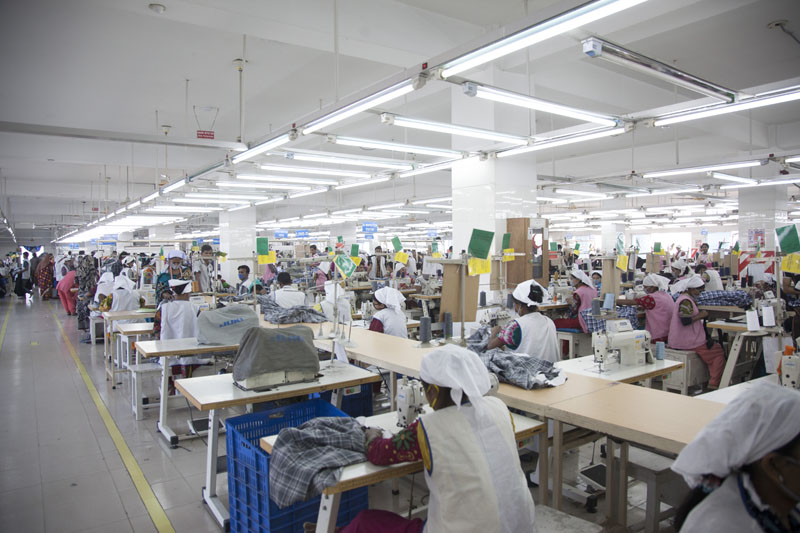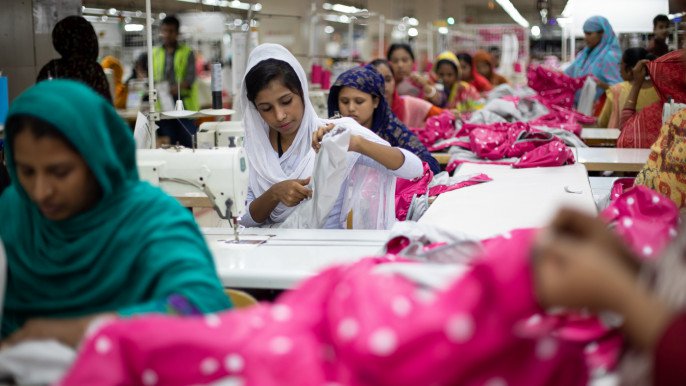Published in The Daily Star on November 5, 2017

Garment shipment to the US, Bangladesh’s single largest export destination, grew only 3.41 percent in the first quarter of the fiscal year in a worrying development for exporters who hope to hit $50 billion in receipts by 2020.
In the first quarter of 2017-18, apparel shipments fetched $1.36 billion, according to the Export Promotion Bureau.
Garment export from Bangladesh to the US has not been growing much in recent months as other countries like India, Vietnam, Pakistan and even Mexico are gaining ground in the market.
Thanks to the emergence of India, Bangladesh is now the sixth biggest apparel exporter to the US, down from fourth spot even a few months ago, according to data from the US Department of Commerce.
The neighbouring country’s garment sector is fast becoming a formidable opponent for Bangladesh on the global stage thanks to the Indian government’s stimulus package of Rs 60 billion, or $894 million.
Bangladeshi exporters are handicapped by infrastructural challenges, due to which goods cannot be delivered to the retailers at quickest time, which the other countries can, said AK Azad, chairman of Ha-Meem Group, a leading garment exporter.
After the Indian government gave the stimulus package for the garment sector and devalued its currency, the prices of apparel items of both Bangladesh and India are almost equal, although the labour cost in India is higher than in Bangladesh, Azad said.
“So many retailers have started sourcing garment items in high volumes from India,” said Azad, who ships more than $500 million worth of garment items in a year, mainly to the US.
With the declining trend of export growth to the US, Germany is becoming the largest single export destination for Bangladesh, said Siddiqur Rahman, president of the Bangladesh Garment Manufacturers and Exporters Association.
Vietnam has been performing well in the US as many American companies invested in the Southeast Asian country after it was included in the Trans-Pacific Partnership free trade pact, Rahman said.
“Those investors are yet to retreat from Vietnam. That’s why Vietnam is performing very well in the US markets and we are going down,” Rahman said.
Twelve countries that border the Pacific Ocean signed up to the TPP in February 2016. The US withdrew following the inauguration of President Donald Trump in January this year, dealing a blow to the deal, which is yet to take effect.
Rahman also said after the Rana Plaza collapse, some US retailers had shifted their work orders worth a few hundred million dollars to other countries.
“They have not returned to Bangladesh yet but I am hopeful they will.”
The BGMEA leader said most the retailers’ worries about workplace safety were addressed thanks to the remediation efforts egged on by the Accord, the Alliance and the government.
He blamed the longer lead time from Bangladesh to the US as one of the major causes for the declining growth in exports to the world’s biggest economy.
Bangladesh exports garment items worth more than $6 billion to the US market every year. However, the exports from Bangladesh have to face 15.62 percent duty for entry to the US.
On the other hand, some African countries are performing strongly in the US markets, as they are exempt from duty under the African Growth and Opportunity Act.
 CPD RMG Study Stitching a better future for Bangladesh
CPD RMG Study Stitching a better future for Bangladesh



